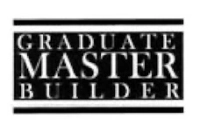How to Choose the Perfect Piece of Property for Your Custom Dream Home in Houston, Texas
The Importance of Choosing the Right Property
Selecting the right piece of property is one of the most critical decisions in the custom home-building process. The location you choose will influence the design and construction cost of your home, as well as your overall lifestyle and future resale value. Whether you're considering an urban setting within Houston, one of the areas highly desirable custom home developments, or a secluded rural tract in the surrounding areas, finding a property that aligns with your vision is essential for turning your dream home into reality.

Finding the Ideal Location
When evaluating potential properties in Houston and surrounding areas, location plays a key role in determining the long-term value and livability of your home. Here are some important factors to consider:
School District
For families, the quality of local schools is often a top priority. Properties located in highly rated school districts tend to maintain their value and attract more buyers when you decide to sell.
Amenities and Recreation
Proximity to amenities such as parks, shopping centers, and recreational facilities enhances your quality of life. Whether you prefer the hustle and bustle of the city or a quieter suburban lifestyle, being close to your amenities can make daily living more convenient.
Travel and Commute
Consider your daily commute to work, school, and other frequent destinations. Easy access to major roads or public transportation can save time and reduce stress, making your day-to-day life more manageable.
Understanding Deed Restrictions
Deed restrictions are legal stipulations that can influence your building plans. It’s important to understand these restrictions before purchasing land:
Minimum Square Footage
Some communities have minimum square footage requirements for homes. Ensure your planned design meets these requirements to avoid costly redesigns.
Architectural Style
Certain neighborhoods enforce architectural guidelines to maintain a cohesive look. If you have a specific style in mind, verify that it aligns with these guidelines.
Masonry Requirements
In some areas, deed restrictions may require a certain percentage of your home’s exterior to be constructed with masonry materials. This can affect both the aesthetic and cost of your home.
Allowances for Additional Structures
If you plan to build additional structures, such as a guest house or workshop, check the deed restrictions to ensure these are permitted.
Balancing Property Cost
While it’s tempting to choose a property based on price alone, it's important to consider the overall value and potential hidden expenses:
Comparing Costs to Nearby Properties
Evaluate the price of your chosen property in relation to nearby properties with similar features. This comparison helps ensure you’re getting good value for your investment.
Hidden Expenses to Consider
Beyond the purchase price, be mindful of hidden expenses such as property taxes, MUD taxes, and utilities. Site preparation costs can also add up, especially if the land requires significant amounts of fill material, which is common in certain areas around Houston.
Navigating Floodplain Considerations
Building in a floodplain presents unique challenges that require careful planning and additional expenses:
Additional Requirements
If your property is in a floodplain—common in many parts of Houston—you may face additional building requirements, such as elevating your home’s foundation. These measures, while crucial for safety and structural longevity, increase construction costs.
Flood Insurance
Properties in flood-prone areas of Houston often require flood insurance, which can be costly. Factor this into your budget when selecting a property in such a location.
Evaluating Site Preparation Costs
The topography and soil conditions of your property can significantly affect construction costs:
Topography
Houston’s relatively flat terrain may seem straightforward, but the slope and elevation of your land can still influence drainage and foundation design. Steeper lots, particularly in more hilly areas on the outskirts of the city, may require more extensive grading, fill material, and retaining walls, increasing your budget.
Soil Conditions
Conducting a soil analysis before purchasing can help identify potential problems that could complicate construction in areas where expansive soils are a concern.
Assessing Utility Availability
Access to utilities is a critical factor when choosing a property. Without proper infrastructure, you may face significant expenses and construction delays:
Water Supply
Does the property have access to a municipal water system, or will you be required to drill a private water well? Private water wells add additional cost to construction but can pay for themselves over time.
Sewer System
Check whether the property is connected to a municipal sewer system or if a private septic system will be needed. Installing a septic system can add to your construction costs.
Gas Supply
If natural gas is important for your home’s heating, cooking, or hot water needs, confirm that gas lines are available in the area. If not, plan on doing an all-electric home or having a propane tank installed.
Electrical Infrastructure
Reliable electricity is essential. Find out the Electric Service Provider. Is the property in a “regulated” or de-regulated” electric market. Determine if the property has a dedicated electric transformer. Investigate the cost of getting a transformer installed on the property if one does not already exists.
Considering Taxes and Fees
Taxes and fees can vary widely depending on the location of your property. Understanding these costs upfront can help you budget more accurately:
Property Taxes
Research the property tax rate in the area and estimate your annual tax bill. Property taxes can significantly affect your long-term cost of ownership.
MUD Taxes
In some areas, Municipal Utility District (MUD) taxes are levied to pay for water, sewage, and other services. These taxes can be substantial and are often overlooked during the property selection process.
HOA Fees
If the property is within a community governed by a homeowners' association, factor in the cost of HOA fees. These fees contribute to the maintenance of common areas and can vary depending on the community’s amenities and services, which are abundant in many of Houston’s master-planned communities.
Analyzing Nearby Home Values
The value of nearby homes can influence both your property’s initial value and its future resale potential:
Comparable Homes
Look at the values of homes in the surrounding area. This information can provide insight into the local market and help you determine whether the property is priced appropriately.
Resale Value
Consider the long-term resale value of the property. Homes in desirable locations with strong community amenities tend to appreciate over time, making them a sound investment.
Optimizing Solar Orientation
The orientation of your property relative to the sun can impact your home’s energy efficiency and comfort:
North/South Orientation
A north/south orientation is generally preferred for maximizing natural light and minimizing energy consumption. This orientation allows for better control of solar gain, keeping your home cooler in the summer and warmer in the winter.
Empowering Your Custom Home Journey with Built Green Custom Homes
At Built Green Custom Homes, we understand that selecting the right piece of property is the cornerstone of your custom home-building journey. The choices you make now will impact every step that follows, from design to construction. We’re here to guide you through the process with expert advice and comprehensive resources.
Our Free Building Classes offer you the insights needed to confidently select your ideal property and navigate the complexities of site preparation. With our Owner Builder Financing options, you can secure the funds necessary to purchase your land and begin building your dream home without the usual financial stress.
To keep your project on track, we provide detailed building schedules and comprehensive construction manuals that ensure every phase of your build is well-organized and aligned with your goals. Partnering with Built Green Custom Homes means you’re not just choosing a piece of land—you’re laying the foundation for a successful, efficient, and rewarding home-building experience. Contact us today to take the first step toward realizing your custom home dream.
Frequently Asked Questions
What should I prioritize when choosing a property for my custom home?
Prioritize factors such as location, school district, proximity to amenities, and commute times. These elements significantly impact your quality of life and the long-term value of your property.
How do deed restrictions affect my building plans?
Deed restrictions can dictate everything from the architectural style of your home to the materials you can use. It’s important to thoroughly review these restrictions to ensure they align with your vision for your custom home.
Why is it important to consider site preparation costs?
Site preparation costs, including grading, fill material clearing, and utility installation, can add significantly to your overall budget. Understanding these costs upfront can help you avoid surprises during the construction process.
What are MUD taxes, and how do they affect my property purchase?
MUD taxes are levied in some areas to pay for utility services like water and sewage. These taxes can be substantial and should be factored into your long-term cost of ownership when evaluating a property.
How does solar orientation impact my home’s energy efficiency?
Solar orientation affects how much natural light and heat your home receives. A north/south orientation is often preferred for energy efficiency, as it allows for better control of solar gain throughout the year.
Can I build additional structures on my property?
This depends on the deed restrictions and zoning regulations of the property. It’s essential to verify whether you can build additional structures, such as a guest house or workshop, before purchasing the land.
Why should I assess nearby home values when choosing a property?
Evaluating nearby home values helps you understand the local market and ensures that you’re paying a fair price for the property. It also provides insight into the potential resale value of your home in the future.
What should I consider when evaluating utility availability?
Ensure the property has access to essential utilities like water, sewer, gas, and electricity. Lack of access can lead to significant additional costs for installation and connection, which should be considered when budgeting for your custom home.
Questions? Comments? Contact Us for more information


 Free Building Classes
Free Building Classes




